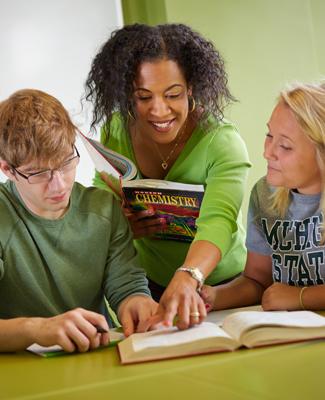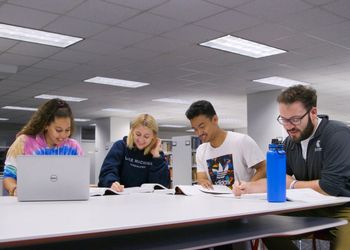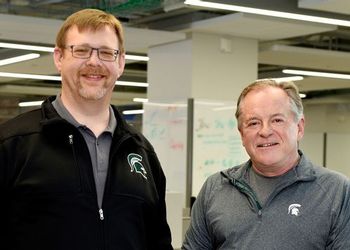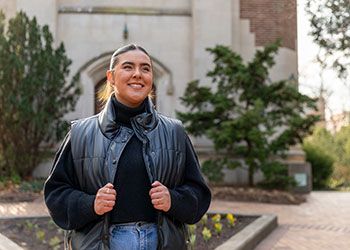$5 M Gift Helps Talented Students Attain STEM Goals
A $5 million gift from the Herbert H. and Grace A. Dow Foundation will help students pursue STEM careers.

$5 M Gift Helps Talented Students Attain STEM Goals
A $5 million gift from the Herbert H. and Grace A. Dow Foundation will help students pursue STEM careers.
October 8, 2014Michigan State University is launching a new program designed to help students who didn’t receive the pre-college math and science training they needed to pursue degrees and, ultimately, careers in science-related fields.
Called STEM Success, the endeavor is funded by a $5 million grant from the Herbert H. and Grace A. Dow Foundation.
“Employers and educators agree that preparing students to be leaders in science and technology is a priority. It’s an economic imperative to strengthen and expand STEM education for students in Michigan,” said Mike Whiting Jr., president of the Herbert H. and Grace A. Dow Foundation. “The foundation was made possible because of innovations in science and technology. We are proud to help launch a new program that will draw upon Michigan State’s leadership in STEM education and help more students prepare for careers in the essential STEM professions.”
The program is expected to annually accept about 300 newly enrolled MSU students interested in STEM-related careers, which include science, technology, engineering and math.
“We are grateful to the Herbert H. and Grace A. Dow Foundation for its partnership and its endorsement of the considerable work already done at MSU around expanding opportunities in STEM-related disciplines,” said MSU Provost June Youatt. “We appreciate its investment in our work and our students, and we share optimism in what this can mean for the students, their communities and the state of Michigan.”
In preparation for learning opportunities in MSU’s undergraduate STEM colleges – engineering, natural science and Lyman Briggs – eligible students can enroll in two gateway courses designed to help them transition from high school to MSU entry-level courses
The Math Bridge Program will use a hybrid format with both on-campus and off-site classes, phone and video support, and online programming to reach enrolled students. A summer 2013 pilot program in the Detroit area resulted in a majority of students who completed the math course passing college algebra last fall.
A second course, Explorations in Chemistry, will focus on the structure and properties of matter, chemical and physical transformation, and energy and electrical interactions
Playing a major role in the program will be MSU’s Neighborhood Initiative, a new concept in on-campus living that brings together a variety of student services under one roof. MSU is divided into five neighborhoods, each providing advising, tutoring, health care, intercultural education, career planning and other services where students live.
The students will be clustered in two of the five neighborhoods to take advantage of concentrated professional and peer support and to foster communities of STEM scholars.
Support from the Herbert H. and Grace A. Dow Foundation will fund neighborhood professional advisers and peer mentors to work with the STEM Success students.
Students also will have opportunities to interact with faculty and industry professionals. For example, MSU’s Midland Research Institute for Value Chain Creation will host the STEM Success students at its research facility and provide speakers to address the students in their neighborhood locations. Students also will have summer learning experiences; for instance, some will assist with research and shadow medical students at MSU’s medical campuses in Midland and elsewhere.
Half of the $5 million grant will fund the program in its first three years. The rest will go into an endowment fund, the proceeds of which will provide funding for peer mentors and for STEM Success students to participate in research.
Co-leaders of the project are SekharChivukula, MSU professor of physics and associate dean for faculty development in the College of Natural Science; Kristen Renn, associate dean of undergraduate studies; Elizabeth Simmons, dean of Lyman Briggs College; and Mark Urban-Lurain, associate professor, College of Engineering.




